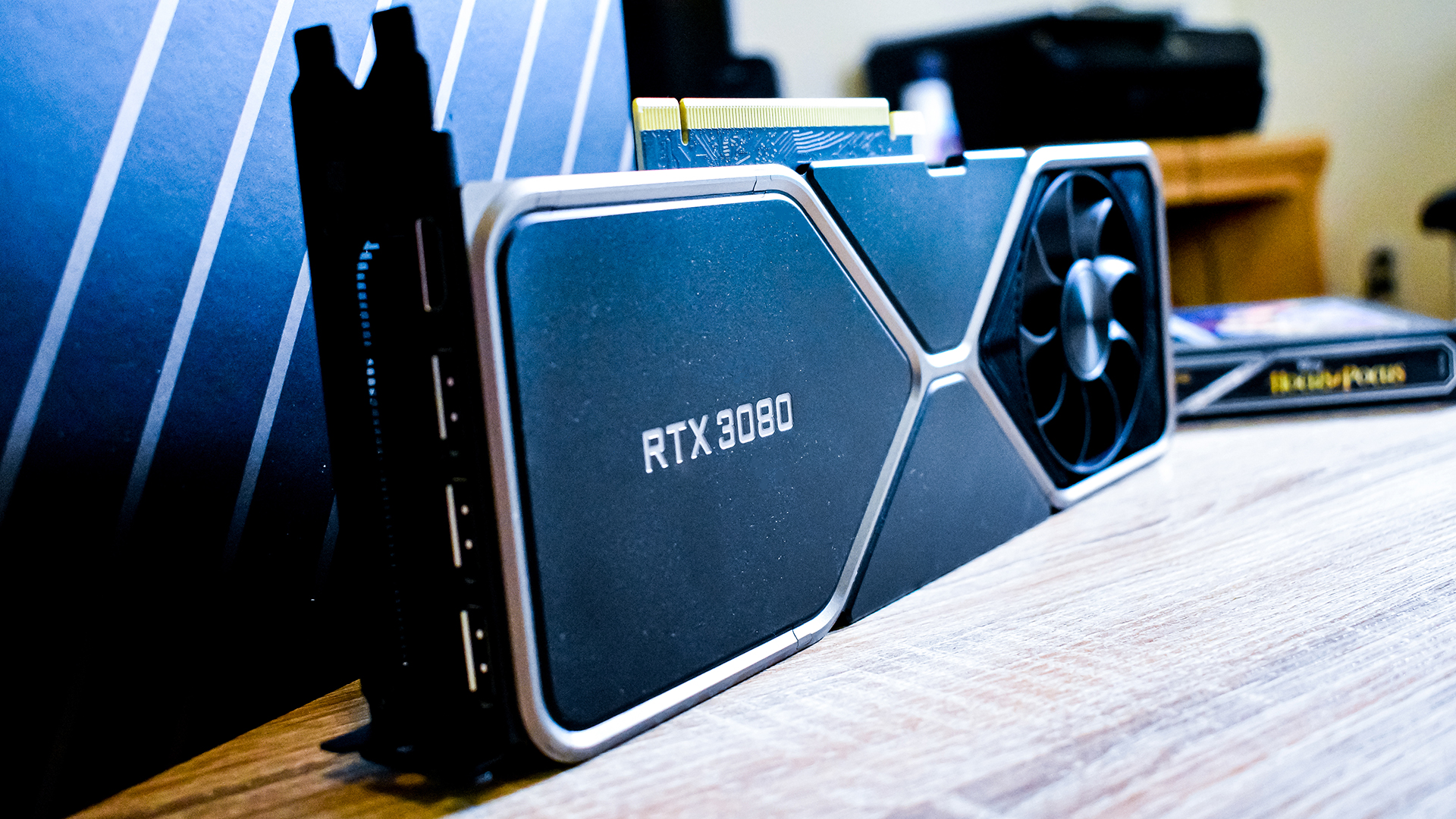AMD to the rescue for Nvidia RTX 2000 and 3000 GPUs, as fudge for DLSS 3 games turbocharges frame rates to an eye-opening level
Mod sounds like a dream come true for older RTX graphics cards

Sign up for breaking news, reviews, opinion, top tech deals, and more.
You are now subscribed
Your newsletter sign-up was successful
Owners of older Nvidia RTX graphics cards can now benefit from FSR 3 frame generation in games that support DLSS 3, thanks to a smart new mod.
Your first reaction to that may be confusion around FSR support being brought in for Nvidia DLSS 3 games, and how that figures. So, the simplest way to look at this is that it’s a fudge for RTX graphics cards that aren’t from the latest Lovelace range.
Those current-gen RTX 4000 GPUs support DLSS 3, of course, so gamers can use that, but the rub is that for previous generations of Nvidia RTX graphics cards, DLSS 3 frame generation isn’t supported.
Here’s where this mod comes in – with those DLSS 3 supporting titles, the mentioned mod is implementing FSR 3 frame generation (in games that don’t support that AMD tech natively). So, what you’re getting is fudged frame generation boosting your frames per second, via a workaround of an AMD solution in Nvidia-supported titles (with Nvidia RTX graphics cards).
All of this is only possible, by the way, since AMD made FSR 3 open source, allowing modders to use it in creative ways – in this case, injecting FSR 3 frame generation into DLSS 3 games. In case you’re wondering, installation involves flinging a couple of DLLs into the game’s folders and running a quick Registry tweak, so it’s not that involved.
At any rate, all that aside, all you really need to know is the upshot of applying this mod to DLSS 3 games is that RTX 2000 and RTX 3000 GPUs get a big old frame rate boost.
Digital Foundry ran the mod through its paces (as flagged up by Tom’s Hardware) in several games, and you can check out the results in the below video.
Sign up for breaking news, reviews, opinion, top tech deals, and more.
To sum up, Cyberpunk 2077 saw an RTX 3080 have its performance boosted by over 60% (at 1440p resolution). The RTX 3080 hit around 60 to 70 frames per second (fps) before tinkering, and then with FSR 3 enabled via the mod, was over 100 fps consistently (and hit highs of up to 120 fps).
Spider-Man: Miles Morales got a similar kind of boost from the mod, going from 50 to 60 fps up to around 100 fps with FSR 3 fudged on.
Analysis: Catch 2
That all sounds undeniably great – so, what’s the catch? Well, there two notable caveats to be aware of.
Firstly, one negative point here, which is true of any implementation of frame generation, is the side-effect of additional input lag. This can be more of an issue with some games than others (you suffer less if you have a pretty robust fps before applying frame generation).
A second downside comes in the form of artifacts and other visual niggles which are introduced due to the way in which FSR 3 support is being artificially jammed in here. Notably with interface elements, which can have off-putting shimmering text, and things like shadows glitching, or a character’s hair going awry. The latter is shown happening in Alan Wake 2, and an apparent solution outlined in the comments on the YouTube clip is to go into the game’s INI file and set ‘bLensDistortion’ to ‘false’ – so that might be worth a whirl.
Anyway, this is a fudge of a solution, and it’s never going to equal a developer properly implementing FSR 3 natively for a game, of course. Overall though, Digital Foundry is pretty enthusiastic about this modded solution and calls it close enough to native FSR 3 that many gamers won’t really notice the difference much of the time.
It’s an odd situation that an AMD tech can be drafted in to help those with older-gen Nvidia GPUs, and the mod can’t actually be used with Team Red’s Radeon graphics cards. But that said, other mods will likely deliver such functionality to non-RTX GPUs including AMD products eventually, down the line.
As a final note, for those wondering: didn’t RTX 3000 GPUs get support with DLSS 3.5, anyway? No, they didn’t. They did get something with DLSS 3.5 – namely support for ray reconstruction (for better ray tracing specifically) – but not frame generation, that wasn’t part of the deal (sadly).
You might also like
Darren is a freelancer writing news and features for TechRadar (and occasionally T3) across a broad range of computing topics including CPUs, GPUs, various other hardware, VPNs, antivirus and more. He has written about tech for the best part of three decades, and writes books in his spare time (his debut novel - 'I Know What You Did Last Supper' - was published by Hachette UK in 2013).
